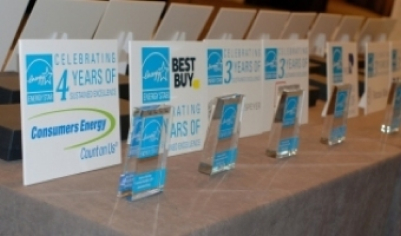

Thanks to the generous support of 10 CEE member organizations, CEE is now representing US and Canadian program administrators in the International Energy Agency (IEA DSM) Task 24 behavior project. This project represents a one-of-a-kind opportunity: CEE member sponsors will develop behavior program resources that focus on an area of their choice, while drawing on the research, outcomes, and expertise of behavioral energy efficiency programs and behavior experts around the world. Members will learn cutting-edge strategies, access untapped evaluation findings, and gather evidence for behavior savings from successful programs overseas—opportunities made possible by the unique CEE role, through which member programs can act in unison.
The IEA DSM Task 24 project was created to standardize successful tools used in behavioral programs and their evaluations and to develop program guidance based on cumulative, real-world behavior research. These tools will be designed for implementation across program types and around the world, taking into account variations across target audiences and regulatory jurisdictions. CEE and the US Department of Energy (DOE) will jointly represent the United States in this groundbreaking effort, and CEE will act as the sole participating agent on behalf of US and Canadian program administrators.
CEE is uniquely positioned to leverage this opportunity; through their CEE membership, sponsoring organizations can access Task 24’s international behavior resources while sharing the costs of participation and building on each other’s insights and experiences to maximize the usefulness of the behavior program resources they produce. Drawing upon IEA-facilitated access to a global network of more than three hundred behavior experts around the world, the project will validate successful techniques used in the United States and enhance our understanding of which behavioral techniques have worked well abroad. The project also offers the opportunity to boost confidence in domestic behavioral programs by providing new international evidence for the rigor and value of these approaches.
In 2018, CEE sponsors and Behavior Committee members will come together at two domestic workshops to develop new behavioral program tools and resources, as well as a final United States country report with a summary of findings and recommendations. On April 11th, CEE project sponsors and Behavior Committee members convened at PG&E in San Francisco to kick off the US effort and determine the area of behavior work on which to focus. At a second workshop in the fall, sponsors will reconvene to create the behavior program resources. Nonsponsoring participants are encouraged to provide their input.
Don’t miss out on the chance to provide feedback on this unique project. Reach out to Kira Ashby, Senior Program Manager for Behavior, for additional details about this project or to participate in the upcoming workshop.
About CEE
CEE is an award-winning consortium of
efficiency program administrators from the United States and Canada.
Members work to unify program approaches across jurisdictions to
increase the success of efficiency in markets. By joining forces at CEE,
individual electric and gas efficiency programs are able to partner not
only with each other, but also with other industries, trade
associations, and government agencies. Working together, administrators
leverage the effect of their ratepayer funding, exchange information on
successful practices and, by doing so, achieve greater energy efficiency
for the public good.